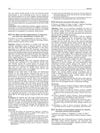 4 citations,
August 2018 in “JEADV. Journal of the European Academy of Dermatology and Venereology/Journal of the European Academy of Dermatology and Venereology”
4 citations,
August 2018 in “JEADV. Journal of the European Academy of Dermatology and Venereology/Journal of the European Academy of Dermatology and Venereology” There is an urgent need for better treatments for hair loss caused by chemotherapy.
 1 citations,
January 2015 in “Advanced techniques in biology & medicine”
1 citations,
January 2015 in “Advanced techniques in biology & medicine” Down Syndrome patients with Alopecia Areata often have hypothyroidism and specific immune abnormalities.
 August 2022 in “Acta dermato-venereologica”
August 2022 in “Acta dermato-venereologica” Propylthiouracil can cause hair loss, reduced sweating, and nail issues, but stopping the drug can reverse hair and nail problems.
 January 2020 in “Der Pharmacia Lettre”
January 2020 in “Der Pharmacia Lettre” Nanoparticle-based herbal remedies could be promising for treating hair loss with fewer side effects and lower cost, but more research is needed.

The document concludes that non-endocrine alopecia in pets varies in treatment effectiveness and often has a poor prognosis, especially in cats.
 December 2018 in “Journal of Advances in VetBio Science and Techniques”
December 2018 in “Journal of Advances in VetBio Science and Techniques” Low testosterone might be a common cause of hair loss in male dogs.
 August 2018 in “Journal of the American Academy of Dermatology”
August 2018 in “Journal of the American Academy of Dermatology” Tofacitinib is a potential alternative treatment for alopecia totalis, especially in patients with a shorter duration of the condition and more preserved hair follicles, but the overall response rate is low.
 July 2015 in “Cambridge University Press eBooks”
July 2015 in “Cambridge University Press eBooks” The document concludes that treatments for female hair loss and excess body hair are available, but managing expectations is important.
 May 2015 in “Journal of the American Academy of Dermatology”
May 2015 in “Journal of the American Academy of Dermatology” Certain drugs and supplements may contribute to hair loss in the frontal hairline in older women.
 September 2009 in “European journal of paediatric neurology”
September 2009 in “European journal of paediatric neurology” Biotin supplements did not significantly reduce hair loss in rats on valproic acid.

A young woman with kidney failure had hair loss due to a common hormonal disorder, which improved with hormone therapy.
 January 2006 in “Elsevier eBooks”
January 2006 in “Elsevier eBooks” Cats with Feline Symmetrical Alopecia can regrow hair with proper treatment based on the specific cause, including diet, medication, or stress management.
 25 citations,
June 2018 in “Journal of The American Academy of Dermatology”
25 citations,
June 2018 in “Journal of The American Academy of Dermatology” Genes linked to fibrosis are more active in people with central centrifugal cicatricial alopecia.
 24 citations,
January 2020 in “JAAD Case Reports”
24 citations,
January 2020 in “JAAD Case Reports” Topical metformin helped regrow hair in two women with a hard-to-treat scarring hair loss condition.
 16 citations,
August 2011 in “Annals of Allergy Asthma & Immunology”
16 citations,
August 2011 in “Annals of Allergy Asthma & Immunology” A woman with severe angioedema improved significantly after treatment with rituximab.
 70 citations,
August 1995 in “Fertility and Sterility”
70 citations,
August 1995 in “Fertility and Sterility” Finasteride reduces hairiness and androgen levels in women with unexplained excessive hair growth.
49 citations,
November 2013 in “JAMA dermatology” Clobetasol propionate, 0.05%, is more effective and safe for treating childhood alopecia areata than hydrocortisone, 1%.
 July 2022 in “المجلة العراقية للصيدلة”
July 2022 in “المجلة العراقية للصيدلة” Most women with excessive hair growth (hirsutism) also experience a common type of non-scarring hair loss called Androgenetic alopecia with telogen effluvium.
August 2021 in “Journal of Investigative Dermatology” The technique effectively promotes hair growth in young men with androgenetic alopecia.
29 citations,
September 1942 in “Archives of ophthalmology” Vogt-Koyanagi syndrome often leads to partial or complete blindness and responds poorly to treatment.
 19 citations,
May 2021 in “Clinical, Cosmetic and Investigational Dermatology”
19 citations,
May 2021 in “Clinical, Cosmetic and Investigational Dermatology” Minoxidil and finasteride are the best for non-scarring hair loss; more research is needed for scarring hair loss treatments.
19 citations,
January 1990 in “Springer eBooks”  December 2023 in “Journal of General Procedural Dermatology and Venereology Indonesia”
December 2023 in “Journal of General Procedural Dermatology and Venereology Indonesia” A 61-year-old Filipino man had a skin condition that looked like another disease, making diagnosis difficult.
 September 2022 in “The American journal of dermatopathology/American journal of dermatopathology”
September 2022 in “The American journal of dermatopathology/American journal of dermatopathology” Sunscreen particles were not found in inflamed or fibrotic areas of skin in FFA patients, suggesting no direct link to the disease.

Scarring alopecia, a type of hair loss, is most common in females under 35, often caused by discoid lupus erythematosus and pseudopelade of Brocq. Skin punch biopsy and histopathology are key to identifying its cause.
 February 2010 in “Journal of The American Academy of Dermatology”
February 2010 in “Journal of The American Academy of Dermatology” White hirsute women with PCOS have higher insulin resistance, but similar nitric oxide and fibrinogen levels compared to those with idiopathic hirsutism.
170 citations,
May 1979 in “The journal of pediatrics/The Journal of pediatrics” Two sisters with rickets and hair loss had a genetic issue with vitamin D processing, and only improved when given phosphorus supplements.
32 citations,
July 2001 in “Journal of the American Academy of Dermatology” SLHA can be hard to diagnose and needs teamwork between specialists.
 24 citations,
January 2001 in “Dermatologic clinics”
24 citations,
January 2001 in “Dermatologic clinics” Hormonal therapy is a treatment option for acne, the only medical treatment for hirsutism, and the most promising for androgenetic alopecia.
 13 citations,
January 2012 in “International Journal of Trichology”
13 citations,
January 2012 in “International Journal of Trichology” Most hirsutism patients had idiopathic hirsutism or PCOS, with hormonal imbalances and signs like acne and irregular periods.
























